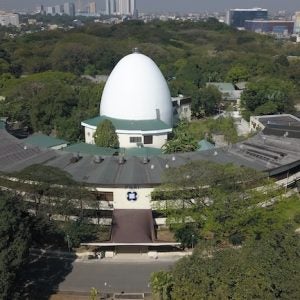The US Department of Energy (DOE) Office of Nuclear Energy (NE) has listed five key takeaways from DOE’s latest budget request that advance nuclear energy and help support the nation’s ambitious goal of net-zero emissions by 2050.
(DOE released its Fiscal Year 2023 (FY23) Budget request in April. The request includes $1.7 billion for NE and is one of the highest ever requests for NE. “This will allow the office to act swiftly on funding activities to support emerging technologies and improvements to the nuclear fuel cycle,” NE said.
The Budget complements the Bipartisan Infrastructure Law (BIL), which provides more than $62 billion for DOE over five years to deliver a more equitable clean energy future. The BIL includes funding to demonstrate advanced reactors, preserve the existing fleet, and develop new ways to produce clean hydrogen, including the use of nuclear energy. NE said it “will continue supporting the implementation of the BIL in coordination with the Office of Clean Energy Demonstrations and the Grid Deployment Office”.
The five takeaways are:
- Advanced reactor demos are moving to the Office of Clean Energy Demonstrations: The BIL includes approximately $2.5 billion through FY26 to support the demonstrations of X-energy’s Xe-100 reactor and TerraPower’s Natrium reactor in the USA. Project management and oversight functions for both projects will be carried out under DOE’s new Office of Clean Energy Demonstrations as outlined in the BIL. NE will continue to manage other projects under the Advanced Reactor Demonstration Program (ARDP).
- The R&D request is increased by 8%. NE is requesting roughly $725 million in research and development activities — an 8% increase over the FY22 request. The request includes $140 million to support projects awarded under ARDP and $12 million to help mature three additional design concepts. The request also supports continued development of small modular and microreactor projects, including MARVEL, which will be used to demonstrate end-use applications in the mid-2020s.
- HALEU should be made available for advanced reactor fuel. NE is requesting $95 million to further establish a programme to incentivise the commercial production of high-assay low-enriched uranium (HALEU) fuel. The funding will be used to procure enriched uranium and deconversion services under the recently formed HALEU Availability programme. The request also supports DOE’s HALEU enrichment demonstration project that is expected to produce 900 kilograms of HALEU a year to help support the demonstration of advanced reactors.
- US university R&D should be advanced. NE is consolidating some of its funding into a new bucket this year to better serve small businesses and US universities, with specific attention to the needs of minority serving institutions (MSIs) and disadvantaged communities. The office is requesting $161 million to support emerging technologies developed by US universities, colleges, and small businesses. The funding also supports university infrastructure improvements and fuel services along with workforce development, including scholarships and fellowships. This newly proposed line item in the budget will allow faculty to propose bolder and more creative R&D directions and empower NE to support the expansion of nuclear engineering programmes at MSIs. NE plans to issue a request for information by the end of fiscal year 2022 to help identify research infrastructure and other capabilities as a focus for those new and expanding university programmes.
- Consent-based siting is important. NE’s budget request includes $53 million to further develop DOE’s integrated waste management strategy for used nuclear fuel. The request includes money to continue early-phase funding for interested groups, communities, States, and Tribes to explore consent-based siting and interim storage, support mutual learning, and reduce barriers to participation in the consent-based siting process.






